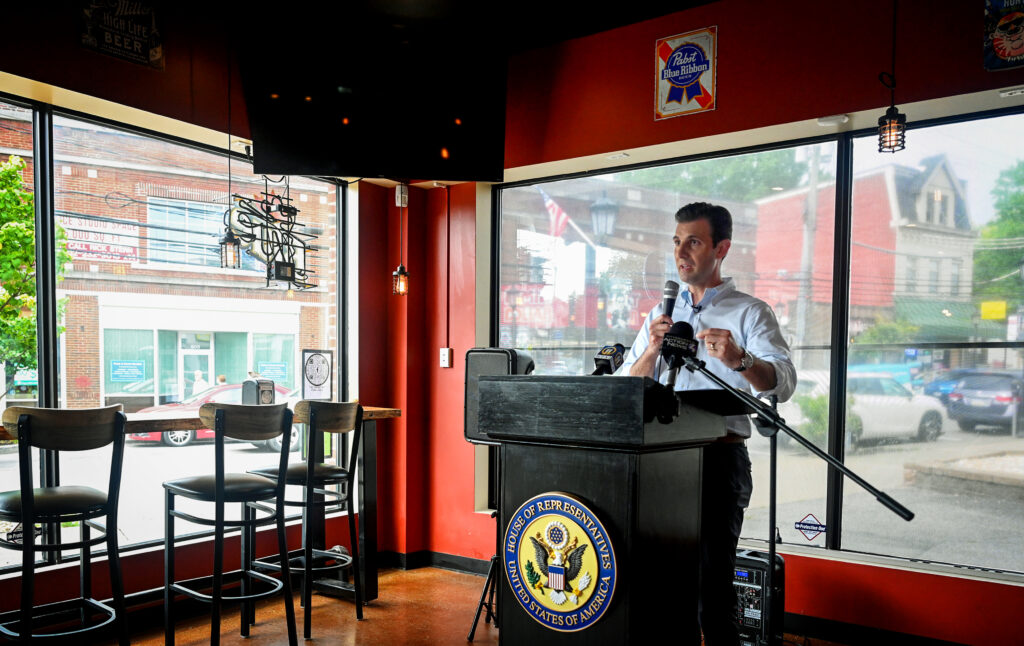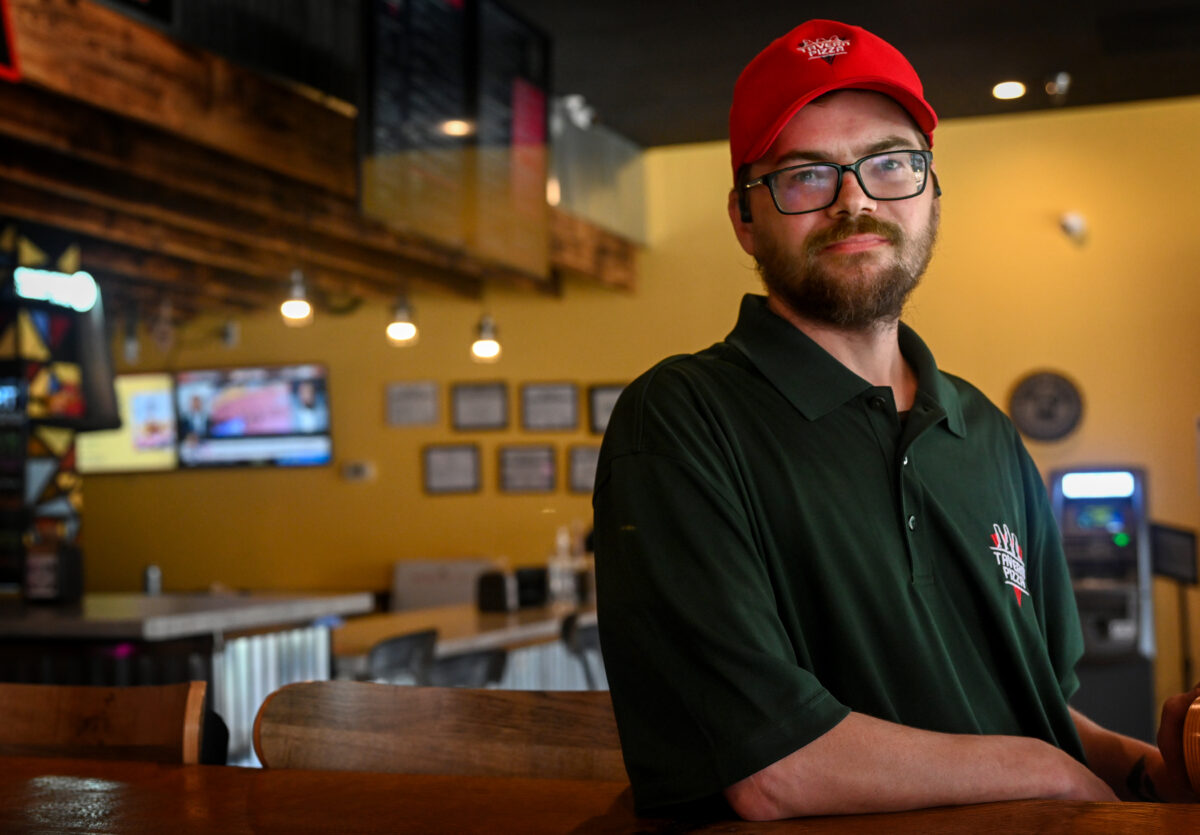The folks who run Tavern Pizza in Bellevue stopped using food delivery apps such as GrubHub, Uber Eats and Doordash in June. The apps were simply causing too many problems, said general manager Andrew Marciniak.
Customers who used the apps to order takeout food would complain they were charged 30% more than if they walked in the door and ordered at the counter. It seemed like a high fee for the convenience of using an app, and it was driving customers away.
“This is just getting ridiculous,” Marciniak said.
Then there were the costs to Tavern Pizza. The business paid to use the apps, and after a while the food delivery companies tacked on more and more fees, Marciniak said. It got to the point where sales from the apps barely covered food costs.
Other issues surfaced. At times, Tavern Pizza would run out of items and have to adjust its menu on the fly. Changing the menu on the apps, however, was a problem. People using apps would continue to order items the pizzeria couldn’t make — and store managers had no way of reaching the customers to let them know.
“The delivery driver would come in to pick up the order, and we’d say, ‘Can you get hold of customer let them know we don’t have that item?’ They [the drivers] would just cancel themselves as the driver, and 15 minutes later somebody else, another driver, would come in to pick it up.”
Somewhere, people would be waiting for a pizza that would never arrive.
One night, one of the apps was not functioning properly. The app accepted orders, but those orders did not show up in the restaurant’s system. People arrived and asked for pizzas they assumed were waiting for them, only to learn the restaurant never received their order. Marciniak said he called the app company to resolve the issue and was told to call a customer service rep. As frustrated customers filled his restaurant, Macriniak grew exasperated.
So Tavern Pizza stopped using the apps and hired three drivers to make deliveries.
“I honestly expected to see a loss in sales until people learned about the new system,” Marciniak said, “but we saw growth right away.”

On Tuesday, U.S. Rep. Chris Deluzio, D-Aspinwall, visited the pizzeria and cited its experience with food delivery apps as an example of what he called “third party middlemen” who get between businesses and customers wanting to purchase items such as food or airline tickets and use hidden fees to make money.
“It’s a lose-lose for our local economies and families, but it’s great for big corporations’ profits,” he said. “It’s the kind of thing that goes on when corporate power remains unchecked.”
These middlemen charge “junk fees” — defined by the Federal Trade Commission as “unnecessary, unavoidable or surprise charges that inflate costs while adding little to no value.”
Such charges hurt customers and small businesses like Tavern Pizza, which Deluzio said make up the “fabric of our neighborhoods.” The pizza shop sits on Lincoln Avenue in the heart of Bellevue, next to an ice cream store and a Chinese restaurant. Several small businesses line this half-mile stretch of the avenue.
Deluzio said the Biden administration is proposing several changes at the federal level that would regulate these fees. They include “getting rid of unfair banking fees and credit card fees, restricting junk fees charged by car dealers, requiring airlines and airline search websites to show the full cost of a ticket up front and making internet providers display a ‘broadband nutrition label’ that tells consumers their actual monthly fees and speeds.”
Deluzio noted he’s the co-sponsor of the Fair Fees Act, which would prohibit airline companies from charging fees — including baggage, seating, canceling and change fees — that “are not reasonable or proportional to the costs of the services actually provided.”
He’s also introduced an amendment to the 2023 Federal Aviation Administration Reauthorization Act that would keep in place consumer protections against deceptive airline pricing — “showing folks what the cost of a ticket is up front,” he said.
The airlines fought against the amendment, he said. “House Republicans caved. They refused the accept the amendment when the bill passed out of the House in July.”
Deluzio said he and other Democrats will continue to push against these practices and other deceptive pricing practices.
“We must have an economy that rewards work, not just wealth,” he said. “We’re all tired of getting ripped off.”
Steve is a photojournalist and writer for the Pittsburgh Post-Gazette, but he is currently on strike and working as a Union Progress co-editor. Reach him at smellon@unionprogress.com.



